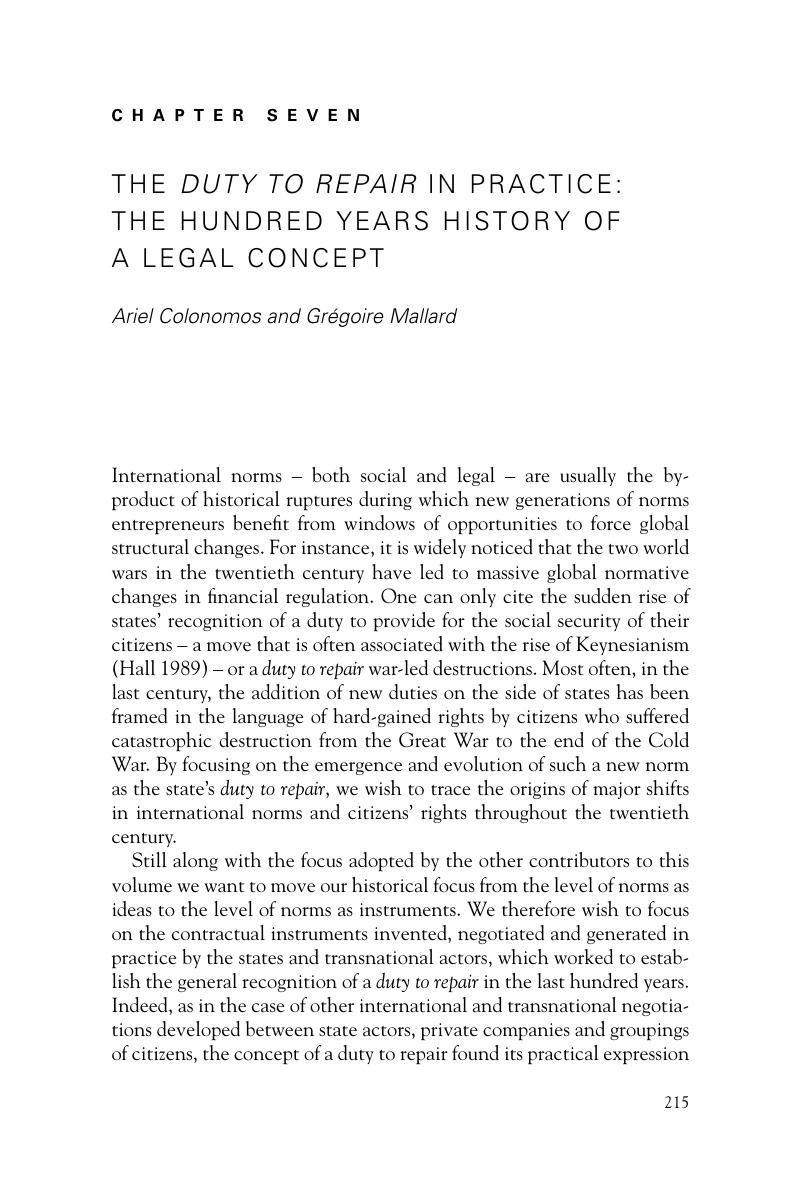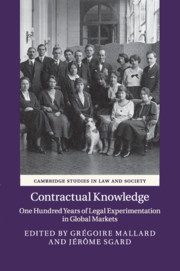Book contents
- Contractual Knowledge
- Cambridge Studies in Law and Society
- Contractual Knowledge
- Copyright page
- Contents
- Figures
- Tables
- Notes on contributors
- Book part
- Glossary
- Chapter One Contractual knowledge: One hundred years of legal experimentation in global markets
- Part One Contracts and sovereign debt obligations: The evolution of contractual provisions
- Part Two Consolidating international organizations: The mobilization of social capital and the standardization of interpretive processes
- Chapter Five A tale of three cities: The construction of international commercial arbitration
- Chapter Six Constructing a transatlantic marketplace of disputes On the symbolic foundations of international justice
- Chapter Seven The duty to repair in practice: The hundred years history of a legal concept
- Chapter Eight The changing ideas about valuation mechanisms in the interwar period: Toeplitz, Marlio and the “Great transformation”1
- Part Three Structuring fields: Market dominance, complementarity and differentiation in complex institutional ecologies
- Index
- Series page
- References
Chapter Seven - The duty to repair in practice: The hundred years history of a legal concept
from Part Two - Consolidating international organizations: The mobilization of social capital and the standardization of interpretive processes
Published online by Cambridge University Press: 05 May 2016
- Contractual Knowledge
- Cambridge Studies in Law and Society
- Contractual Knowledge
- Copyright page
- Contents
- Figures
- Tables
- Notes on contributors
- Book part
- Glossary
- Chapter One Contractual knowledge: One hundred years of legal experimentation in global markets
- Part One Contracts and sovereign debt obligations: The evolution of contractual provisions
- Part Two Consolidating international organizations: The mobilization of social capital and the standardization of interpretive processes
- Chapter Five A tale of three cities: The construction of international commercial arbitration
- Chapter Six Constructing a transatlantic marketplace of disputes On the symbolic foundations of international justice
- Chapter Seven The duty to repair in practice: The hundred years history of a legal concept
- Chapter Eight The changing ideas about valuation mechanisms in the interwar period: Toeplitz, Marlio and the “Great transformation”1
- Part Three Structuring fields: Market dominance, complementarity and differentiation in complex institutional ecologies
- Index
- Series page
- References
Summary

- Type
- Chapter
- Information
- Contractual KnowledgeOne Hundred Years of Legal Experimentation in Global Markets, pp. 215 - 248Publisher: Cambridge University PressPrint publication year: 2016
References
- 1
- Cited by

